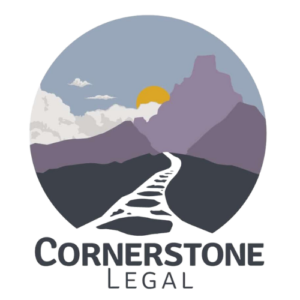We know you want to take care of your family and we want to help you avoid MANY Estate Planning Mistakes so you can do just that! Here are 7 Estate Planning Mistakes and Myths to be aware of as you organize your assets.
#1. Not Having a Plan At All
The biggest mistake may be to not have a plan in place at all. Without one, your state’s laws will determine who receives your assets. You lose the power and opportunity to be intentional with your planning and provide for your family in the unique ways that they need protected. Not only does this affect your assets when you pass, but when you are living you are exposed to probate guardianship and conservatorship. These types of matters can be costly and lengthy, and are very public.
#2. Having a “DIY” Plan
Having an Estate Plan is TOO IMPORTANT to take the easy way out. “Easy way out” means buying a template online. JUST DON’T DO THIS! A botched template can make things much harder later and cost your family money and cause hardship. When you’re considering how you want your family taken care of and your assets distributed, it’s important to learn all of your options and understand the whole process. Estate Planning is certainly an investment and is not something that should be taken lightly. Creating a custom plan that has all the essential areas covered for you and your family cannot be accomplished by purchasing a template online.
#3. Never Reviewing Your Plan
Now that you have your Estate Plan in place don’t forget to review it every now and then! There are many life changing events, big and small, that can affect – even detour – your Estate Plan. Don’t make the mistake of investing in a plan and then never reviewing it. This should be done every 2-3 years. Simply pull out your documents and look over who you’ve named as your Trustees/Agents and beneficiaries. Who’s in charge and who gets your stuff? Also, be attentive to/aware of these life changing events that should trigger a review of your Estate Plan:
- Birth/adoption or death of a child
- Disability of a child
- Death of a Trustee/Agent
- Your marriage or divorce
- Receipt of a substantial inheritance
- A change in the Federal Estate Tax Exemption
#4. Never Updating Your Plan
Now that you’ve reviewed your Estate Plan and there’s been some of these big life changes, for better or worse, it’s time to make the necessary updates. The aspects of your plan to consider revising are:
- Updating your Trustees/Agents if one of yours dies
- Adding successor Trustees/Agents if one of yours dies
- Adding new beneficiaries when you have/adopt another child
- Changing beneficiaries after the death of a child or beneficiary
- Adding alternative distribution provisions if you inherit a large sum of money or the Federal Estate Tax Exemption changes
#5. Not Funding Your Trust
Great! You set up a Living Trust. Now don’t forget to fund your assets into your Living Trust! If you don’t, you leave your estate and family exposed to possible Probate Administration. Funding your Living Trust consists of:
- Signing changes of ownership or beneficiary designations for checking/savings accounts, CDs, and investment accounts to your Living Trust
- Possibly updating beneficiaries on retirement accounts and life insurance policies
- Deeding real property into the name of your Living Trust
- Possibly assigning business interests and personal property to your Living Trust
Make sure you decide, not the court! Not every attorney offers the services, resources, or instructions to fully fund the plans they draft. I do. And I’m here with a helping hand to guide you through the whole process.
#6. Not Planning For Incapacity
Every Estate Plan will have either a Living Trust or Will as its foundation. But everyone needs more planning in place to fully avoid Probate Administration. A good Estate Plan will include incapacity planning to protect you from probate exposure during your lifetime. This includes Financial and Healthcare Powers of Attorney, and provisions in your Living Trust for Successor Trustees to step in when you become incapacitated.
#7. Not Using An Experienced Drafter
Think of Estate Planning as an art form that requires extensive knowledge and experience. It’s important to find an attorney who specializes in Estate Planning to ensure you are receiving the best advice and most current Trust Code information. There are so many planning options that you can take advantage of and it’s really important to have an expert by your side.
Conclusion
So, it’s important to have a well thought out Estate Plan in place. And, you see, because life happens, and things change, it’s just as important to revisit it along the way. Make sure it continues to be secure and adjusts along with life’s changes. Let me be of assistance to you. Let’s discuss your options to learn how you can protect and provide for your family with a robust, custom Estate Plan without these Estate Planning mistakes.
Give me a call at (517) 708-2222 or email me at Katrina@CornerstoneLegalPLLC.com.



